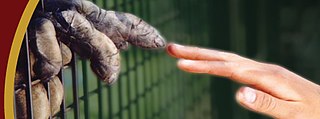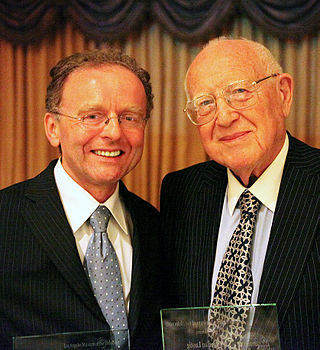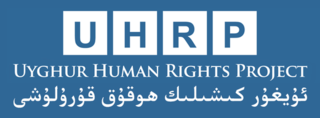
A non-governmental organization (NGO) is an organization that generally is formed independent from government. They are typically nonprofit entities, and many of them are active in humanitarianism or the social sciences; they can also include clubs and associations that provide services to their members and others. NGOs can also be lobby groups for corporations, such as the World Economic Forum. NGOs are distinguished from international and intergovernmental organizations (IOs) in that the latter are more directly involved with sovereign states and their governments.

Humanitarianism is an active belief in the value of human life, whereby humans practice benevolent treatment and provide assistance to other humans to reduce suffering and improve the conditions of humanity for moral, altruistic, and emotional reasons. One aspect involves voluntary emergency aid overlapping with human rights advocacy, actions taken by governments, development assistance, and domestic philanthropy. Other critical issues include correlation with religious beliefs, motivation of aid between altruism and social control, market affinity, imperialism and neo-colonialism, gender and class relations, and humanitarian agencies. A practitioner is known as a humanitarian.

The Great Ape Project (GAP), founded in 1993, is an international organization of primatologists, anthropologists, ethicists, and others who advocate a United Nations Declaration of the Rights of Great Apes that would confer basic legal rights on non-human great apes: bonobos, chimpanzees, gorillas and orangutans.

The Institute for Ethics and Emerging Technologies (IEET) is a technoprogressive think tank that seeks to "promote ideas about how technological progress can increase freedom, happiness, and human flourishing in democratic societies." It was incorporated in the United States in 2004, as a non-profit 501(c)(3) organization, by philosopher Nick Bostrom and bioethicist James Hughes.

Gedenkdienst is the concept of facing and taking responsibility for the darkest chapters of one's own country's history while ideally being financially supported by one's own country's government to do so. Founded in Austria in 1992 by Andreas Maislinger, the Gedenkdienst is an alternative to Austria's compulsory national military service as well as a volunteering platform for Austrians to work in Holocaust and Jewish culture-related institutions around the world with governmental financial support. In Austria it is also referred to as Austrian Holocaust Memorial Service provided by the Austrian Service Abroad. The Austrian Gedenkdienst serves the remembrance of the crimes of Nazism, commemorates its victims and supports Jewish cultural future. The program is rooted in the acknowledgment of responsibility by the Austrian government for the crimes committed by National Socialism.
The International Federation for Human Rights is a non-governmental federation for human rights organizations. Founded in 1922, FIDH is the third oldest international human rights organization worldwide after Anti-Slavery International and Save the Children. As of 2020, the organization is made up of a federation of 192 organizations from 112 countries, including Israel and Palestine, including Ligue des droits de l'homme in over 100 countries.

Nonviolence International (NI) acts as a network of resource centers that promote the use of nonviolence and nonviolent resistance. They have maintained relationships with activists in a number of countries, with their most recent projects taking place in Palestine, Sudan and Ukraine. They partnered with International Center for Nonviolent Conflict to update Gene Sharp's seminal work on 198 methods of nonviolent action through a book publication. NI has also produced a comprehensive database of nonviolence tactics, which stands as the largest collection of nonviolent tactics in the world. They partner with Rutgers University to provide the largest collection of nonviolence training materials in the world.

Humanity First is an international charity that provides disaster relief and long term development assistance to vulnerable communities in 52 countries across 6 continents. The organisation is run by volunteers with diverse skillsets across the world and has access to thousands of extra volunteers worldwide. Volunteer staff in all areas often pay their own expenses to support the international projects.
Scholars at Risk (SAR) is a U.S.-based international network of academic institutions organized to support and defend the principles of academic freedom and to defend the human rights of scholars around the world. Network membership includes over 530 higher education institutions in 42 countries.
Humanity most commonly refers to:

The Center for Women's Global Leadership, based at Rutgers University, was founded in 1989 by Charlotte Bunch, the former executive director and an internationally renowned activist for women's human rights. Executive Director Krishanti Dharmaraj is also the founder of the Dignity Index and co-founder of WILD for Human Rights and the Sri Lanka Children's Fund. The former executive director, Radhika Balakrishnan, is now the faculty director, and a professor in the Department of Women's and Gender Studies at Rutgers, chair of the Board of the US Human Rights Network, and a board member of the Center for Constitutional Rights. Located on Douglass Residential College at Rutgers University, CWGL is a unit of International Programs within the School of Arts and Sciences and is a member of the Institute for Women's Leadership, a consortium of women's programs at Rutgers.
Population Action International (PAI) is an international, non-governmental organization that uses research and advocacy to improve global access to family planning and reproductive health care. Its mission is to "ensure that every person has the right and access to sexual and reproductive health, so that humanity and the natural environment can exist in balance with fewer people living in poverty". PAI's headquarters is in Washington, D.C.
NetCorps was a volunteer-organizing coalition consisting of nine Canadian non-governmental organizations (NGOs), funded by the Canadian International Development Agency (CIDA) and managed by the NetCorps coordination unit. Through the program, the organizations created international information and communication technologies (ICT) internships in developing countries around the world. Interns typically participated in six-month programs, leaving between August and November for host organizations in the placement countries. Positions were limited to 19–30-year-old Canadian citizens or landed immigrants who had "appropriate information and communication technologies skills". Typical duties included creating webpages, developing databases, computer networking, setting up hardware, preparing manuals and other documentation, and general-to-advanced computer instruction.
Fahamu is a not-for-profit organization supporting organizations and social movements championing progressive social change and human rights. With branches in the United Kingdom, South Africa, Senegal, and Kenya, Fahamu primarily engages with civil and human rights organizations through Pambazuka News, an online platform focusing on social justice. Additionally, they offer online courses on human rights and social justice and employ new technologies, including SMS, for information dissemination, lobbying, and interactions.
Amicus is a legal non-profit organisation based in London, United Kingdom which helps secure equal access to justice for those facing the death penalty in the United States.
The Montreal Institute for Genocide and Human Rights Studies (MIGS) is a research institute based at Concordia University in Montreal, Quebec, Canada. It was founded in 1986 and promotes human rights awareness, in the field of genocide and mass atrocities by hosting frequent events, publishing policy briefs, engaging in counter activism on the web, and many other programs. Its keystone project is the Will to Intervene (W2I) Project which, under the advisement of Lt. General Roméo Dallaire and MIGS' Director Frank Chalk, builds domestic political will in Canada and the United States to prevent future mass atrocities.

The Whitney R. Harris World Law Institute at Washington University School of Law, established in 2000 as the Institute for Global Legal Studies, serves as a center for instruction and research in international and comparative law.
The State Government of Tasmania in Australia established the Tasmanian Honour Roll of Women in 2005 to recognise Tasmanian women who have been distinguished in their contributions to the State. In 2021 Martine Delaney became the first openly transgender woman into the Honour Roll.

The Uyghur Human Rights Project is a research-based advocacy organization located in Washington, D.C. that promotes human rights for Uyghurs. According to the UHRP, its main goal is "promoting human rights and democracy for Uyghurs and others living in East Turkistan" through research-based advocacy.









